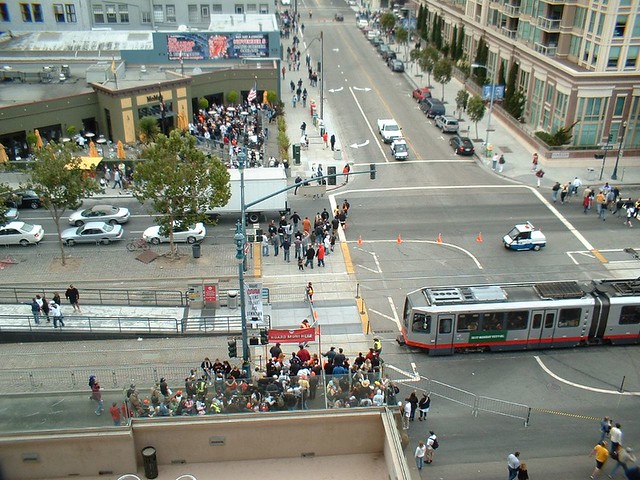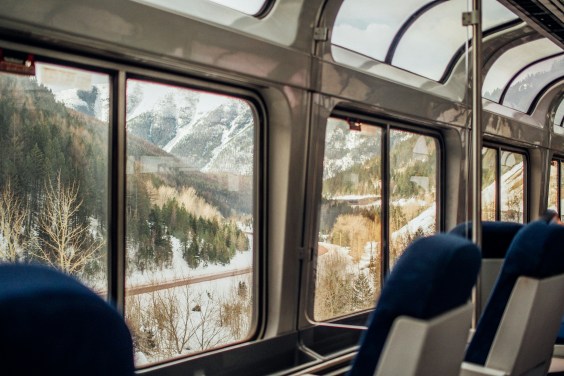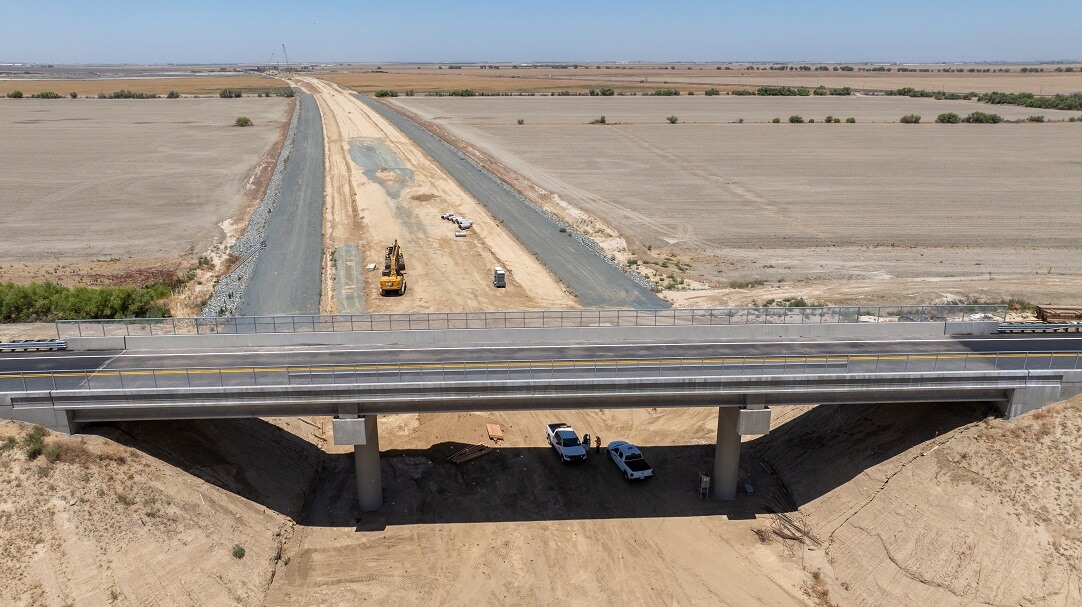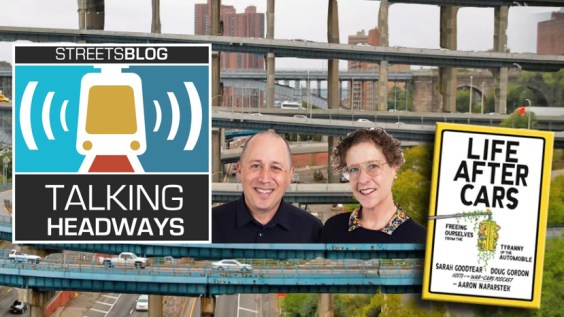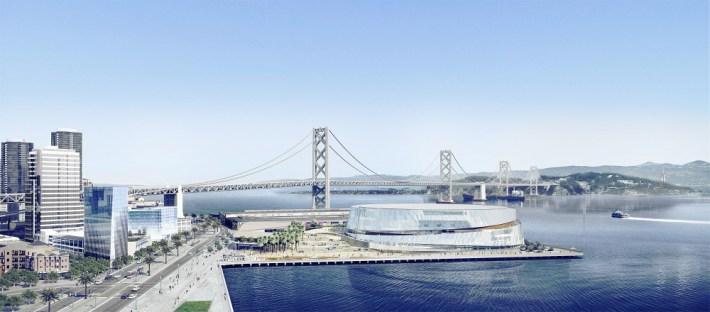
Transporting folks to and from a new Warriors arena, condo, and hotel development planned for Piers 30-32 along the Embarcadero will require smart planning and the money to fund improvements for transit, walking, and biking to avoid clogging the waterfront with cars.
But Muni typically gets shorted when it beefs up transit service to bring fans to major sports and music events around the city, says Supervisor Scott Wiener, who yesterday proposed adding a $1 to $3 transit surcharge to tickets for such events. Wiener asked the City Controller's Office to study the impacts of such a fee, and he says preliminary estimates indicate it could bring in anywhere from $3 million to $22 million per year for Muni, depending on the size of the fee and which venues pay it.
"Muni doesn’t have enough light rail vehicles, its vehicles frequently break down, and service has degraded," Wiener said in a statement. "With a growing population and a possible new sports/concert arena at Piers 30-32, now is the time to ensure that Muni can meet not only today’s transit needs, but also the transit needs of the future."
"Currently, the Muni underground is overwhelmed whenever there’s a Giants game. With the addition of the new arena, the strain on Muni service will be even more severe."
Tom Radulovich, executive director of Livable City and president of the BART Board of Directors, said the proposal "would certainly help Muni run the extra service," for which the agency often pays transit operators overtime.
Radulovich pointed out that the surcharge wouldn't necessarily come out of fans' pockets, since venue managers would likely lower their ticket prices to match the going rate. "If they could charge two bucks extra on a ticket already, they'd be doing it," he said. "They price them to fill the seats."
An even better proposal, Radulovich noted, would be for event tickets to include a free Muni ride to encourage attendees to take transit instead of drive.
The current proposal for the Warriors arena and surrounding development would include a 500-space parking garage. While that number has been downsized from as many as 930, and the arena itself would replace an existing 2.3-acre parking lot, "There should be as little parking as we can get away with," Radulovich said. "Every parking space they add is going to bring more traffic to the city, and all that traffic on the Embarcadero really cuts the city off from the waterfront."
The Warriors development has come under fire recently from a group called the SF Waterfront Alliance, which calls for greater scrutiny of the project's impacts and better preparation to accommodate the influx of visitors. The Alliance's efforts have the backing of former San Francisco Mayor Art Agnos, who, in his tenure, led the charge to take down the Embarcadero Freeway after it was damaged by the 1989 Loma Prieta earthquake.
On a recent edition of KQED Forum, Agnos argued that the Warriors are unfairly putting the onus on the city to plan for and fund transit improvements. "Our current Muni system is one billion dollars underfunded for the rest of the city, even before we address any of the prospective ideas for new transit along the waterfront, which by the way, the Warriors say is entirely a city cost," he said.
The Warriors are expected to pay $14 million in one-time transit impact fees, but Agnos said it's unclear how much will actually go towards transportation rather than affordable housing.
Jennifer Matz, SF's director of waterfront development, argued on the forum that the arena, which opens in 2017, will be better served by transit service with the opening of the Transbay Transit Center and the Central Subway, both of which are currently under construction.
The Central Subway, however, isn't set to open until 2019, and Radulovich said it would actually take Muni service off the Embarcadero. That's because trains on the T-Third line, which currently run along the waterfront to enter the Market Street subway, will be diverted to run down the Central Subway corridor on 4th Street to Chinatown once it opens. "I don't believe Muni has the rail cars to expand service even if they wanted to," he said.
The broader issue, Radulovich and the Waterfront Alliance argue, is that developments like the Warriors arena are moving ahead without a comprehensive planning effort for the waterfront.
Other than the E-Line -- a long-proposed extension of the historic streetcar route on the F-Line that would run past Market along the Embarcadero to Mission Bay -- there aren't many significant transit expansions in the works for the waterfront in the coming years.
The SFMTA recently began an assessment of transportation along the waterfront, as the SF Examiner reported:
As part of that new program, which is in its development stages, the agency is examining the possibility of setting up a new transit hub on 20th Street, extending streetcar service into Mission Bay, expanding its bike-sharing program beyond the current scope of the Financial District and completing the Blue Greenway, a network of pedestrian and bike paths along the waterfront.
Radulovich said he's "skeptical" of the SFMTA's planning effort since similar initiatives in the past have been non-starters.
"We need a good plan, for one, to spend the money that's already there," said Radulovich, "and if there's not enough money to implement the plan, then the Warriors and the other developments along the waterfront need to pony up."
"Now is the time," said Wiener," to shore up the system so that people can easily get to sports and concert events, while everyone else in the city can get where they’re going. The two shouldn't be mutually exclusive. By assessing a modest fee on large-venue sports and concert tickets, we can begin to address this challenge."
"Right now Muni is at a breaking point, and it’s only going to come under more pressure. This problem isn’t going away, and we need to address it quickly and decisively."
